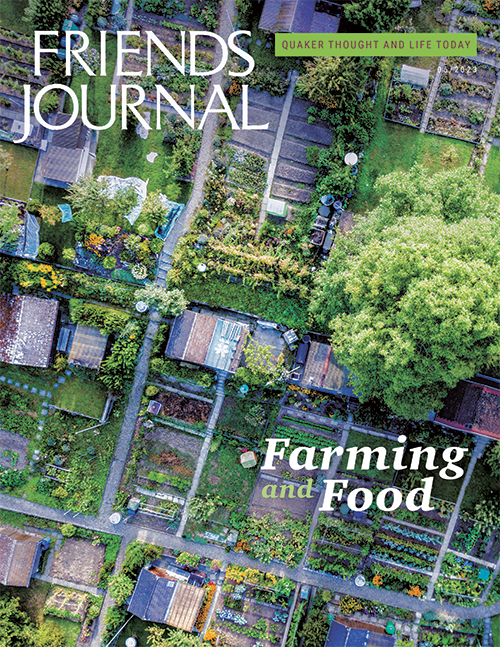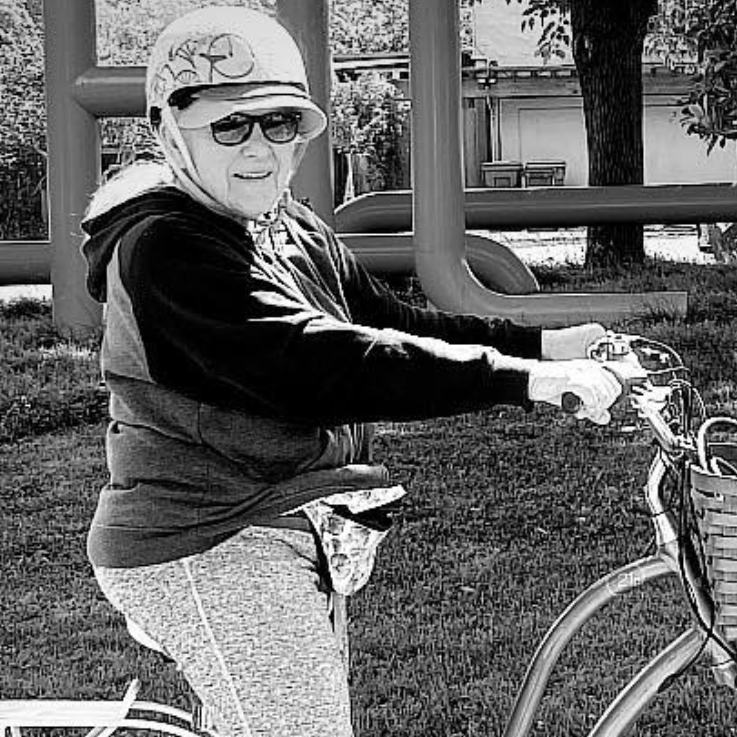EDITOR’S NOTE: Fasting can be a trigger for eating disorders. People with diabetes should also avoid fasting. You should always consult a physician before engaging in any type of fast.
Fasting and Body Prayer
We need to work towards some form of reconciliation between the body and the mind; we need to treat the body as just as important as the mind. We can try that by practicing body prayer.—Grace Ji-Sun Kim, Body Prayer for Every Day
Body prayer is a series of movements performed along with or instead of prayer words. The best known example is a contemporary prayer based on the motto of a U.S. order of Episcopalian nuns founded in 1985 and named after Julian of Norwich. It includes four gestures that accompany the words await, allow, accept, and attend. Body prayer also includes centered yoga practice; meditative walking; and heartfelt singing, chanting, dancing, or drumming. However, Grace Ji-Sun Kim offers a more full-bodied definition: body prayer is consenting to the action of the Indwelling Divine in our bodies: that is, staying present in the now while working, doing household chores, caring for others, preparing food, eating, and so on. In the same vein, fasting—abstaining from food or drink mindfully for spiritual purposes—is body prayer, according to Doug Bagitt and Kathryn Prill in Body Prayer: The Posture of Intimacy with God.
Fasting has long been an option or obligation in many of the world’s spiritual paths, but its history is tarnished by occurrences of overzealous asceticism and in modern times, by claims of anorexia nervosa, an eating disorder in which the compulsion to starve is accompanied by extreme weight loss and body dysmorphia. It is true that fasting can be a trigger for eating disorders, so anyone susceptible to disordered eating should avoid it. People with diabetes should also avoid fasting. In my case, gluttony, aka hypereating, has been my sin of choice, and I would never starve myself, so fasting began to seem like a good body prayer for me to try.
Spirit led me to begin gentle fasting as an embodied discipline last year after Thanksgiving. Advent was a good time for me to align myself with the alternation of seasonal feasting and fasting in the early Christian liturgical calendar. I wanted to live the testimonies of simplicity and integrity, experience physical well-being, and find coherence around food and eating in a season when food insanity prevails. My sisters from my faithfulness group gently helped me discern this leading and stay attentive to Spirit. They probed my motivations and methods, and kept me accountable.
Jews like Jesus, proto-Christians like Paul, and early Friends like George Fox and James Nayler practiced fasting, as well as many others from other faith communities. Early Friend Miles Halhead’s fasting experience intrigued me. In December 1652, Halhead heard “the Word of the Lord” leading him to keep a water fast for 14 days, and his description of the leading (found in A Book of Some of the Suffering and Passages of Miles Halshead) is lyrical and charming:
Thou shalt not eat nor drink for the space of 14 dayes anything but Water: But fear not, for I will feed thee with the Dew of Heaven, and with the sweet Incomes of my Love; & my Word shall be unto thee sweeter than the Honey or the Honey-Comb, and I will make thee to know, that I am able to keep and preserve thee fresh and strong.
Happily, during the fast, Halhead was “kept very fresh and able of Body,” according to Kenneth Carroll in his paper “Early Quakers and Fasting,” a sign that Spirit had indeed supported his fast with incomes of love.
I decided to fast one day a week, from supper on Thursday to supper on Friday, and I drank coffee, tea, broth, and water. In grateful relief, I saw these simple liquids as heavenly, and they satisfied me. I did my usual activities more mindfully and slowly, and mundane activities became indulgent acts of (self-)love. I encouraged myself with words sweeter than honey if I became hangry. I prayed, “Spirit, keep me strong. Love, keep me fresh.” Gentle weekly fasting kept me grounded during the season of excess eating, so I have continued fasting once a week into 2023. Over the weeks, mindful fasting extended to my use of the Internet and devices.
Equanimity
Fasting is a minute by minute sign of a surrender to Divine will, so I may love myself authentically; it is a spiritual muscle that gains strength through discipline. Contemporary Friend Robert Griswold wrote in Marking the Quaker Path, a Pendle Hill pamphlet, “No discipline is needed or desired in a consumer culture. . . . Discipline is a muscle that acquires strength through exercise.” Fasting involves self-regulating thoughts, emotions, and actions to stay present to Spirit at all times. It sets a boundary of love around my eating behaviors.
Paul, a posthumous student of Jesus, fasted according to the Jewish calendar and for three days after his conversion experience. In his Epistle to the Philippians, he described how he lived with equanimity in the face of his many difficulties:
For I, however I am placed, have learned to be independent of circumstances. I know how to face humble circumstances, and I know how to face prosperity. Into all and every human experience, I have been initiated—into plenty and hunger, into prosperity and want. I can do everything in the strength of the one who makes me strong!
When I need inspiration, I pray, “I can do anything with the Indwelling to nourish me.”
Gentle Resistance
Eating is essential to human culture, and if someone refrains from eating, it is a refusal to go along with the crowd. Most Friends are aware of fasting as a nonviolent strategy of noncooperation with injustice and oppression, used since at least the eighth century BCE. Isaiah 58:6 wrote: “Is not this the kind of fasting I have chosen: to loose the chains of injustice and untie the cords of the yoke, to set the oppressed free and break every yoke?” Both early and modern Friends reference the verse from Isaiah and have fasted as a sign of resistance.
Sustainability pioneers Helen and Scott Nearing, authors of The Good Life, had three objectives when they went back to the land in the 1930s: economic autonomy, healthy living, and freedom from complicity with the plunder of the planet and exploitation of humans and other animals in war and for profit.
Fasting was part of the Nearing’s living testimony of autonomy, health, and freedom:
One day a week we aim at twenty-four hours on just liquids, either juice or water. We enjoy these days of fasting and look forward to them as one of the high points of our week. Not eating (as long as one is not starving) can be as enjoyable as eating . . . going without food can give one a feeling of freedom and release that is real emancipation.
They distanced themselves from mainstream culture and embodied their moral principles with a simple, sustainable lifestyle, but they did not experience fasting as Spirit-led. Still, their witness affords me a sweet prayer of four words: “resistance, freedom, release, emancipation.”
Spirit and Embodiment
Luke 4:1-4 describes one of Jesus’s fasts, during which he spent 40 days in the wilderness at the beginning of his ministry. After he had not eaten for some time, an inner voice identified as the devil tempted him to change stones into bread so that he could eat. The way I understand this verse is that Jesus felt internal conflicts around food like other humans. He wanted to maintain his fast, but he also wanted to exchange his fast for some bread from the nearest village. Instead of caving in, and instead of relying on will power, Jesus attended to the Indwelling Divine, and answered: “It is written: it is not by bread alone that a person is to live.” His fast was a way of changing priorities and overriding Spirit/body duality. When I experience nagging discouragement, I attend to Indwelling Love: “I do not live by bread alone.”
Eating is a major part of human embodiment, so, like other activities, it can be joyful or fraught. Spiritual embodiment is our intention to co-create with the Divine a sense of joyful wholeness internally. Early Friends understood this co-creation very literally. George Fox wrote in Epistle 270:
For the light that shines in your hearts will give you the knowledge of the glory of God in the face of Jesus Christ, so that you may know the heavenly treasure in your earthly vessels, and the day star to arise, the day to dawn in your own hearts, that you may become temples of Christ; he to dwell with you, and walk with you, and sup with you.
I feel accompanied by the Indwelling supping with me and fasting with me. I call on this companionship to comfort me. “Spirit, rest in my body. Christ, sup with me.”
James Nayler, a frequent faster, wrote in Milk for Babes and Meat for Strong Men:
By supping [or fasting] continually with him, and he with you, will you come so to be filled with him, that all haste and impatience and distrust will be covered and overcome with him, and so your mortal [body] be swallowed up of the immortal, till it become your whole life and being; and all your thoughts, words, and actions have their rise and being therein; so that self be seen no more.
After absorbing this message, my irreverent prayer came to me spontaneously, “I’ll have what he’s having.” Now it is one of my favorite prayers.





1 thought on “Not By Bread Alone”
Comments on Friendsjournal.org may be used in the Forum of the print magazine and may be edited for length and clarity.